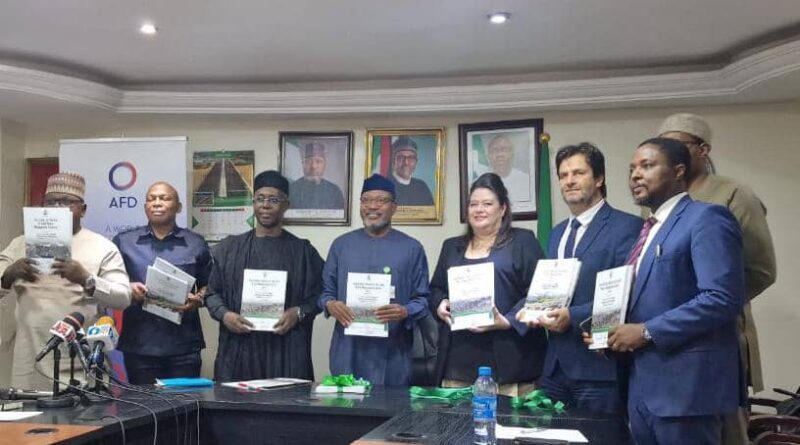FG Unveils Key Strategies To Tackle Waste
By Bukar Bolori
Nigerian government has taken a giant stride towards the waste management in the country with the release of strategies for the sector.
The Ministry of Environment in conjunction with the French Embassy in Nigeria and the French Development Agency (AFD) on Wednesday in Abuja unveiled the Gap Analysis Report of the Solid Waste Management Sector; National Roadmap on Solid Waste Management and User Guide for the use of Solid Waste Management Database to assist in tackling some of the challenges of waste management in the country.
The Minister of Environment, Alhaji Mohammed Abdullahi, in collaboration with the French Ambassador to Nigeria and ECOWAS, Mrs Emmanuelle Blatmann and AFD Country Director, Mr. Xavier Muron, unveiled the outputs and deliverables of the Technical Assistance (TA) programme to support the Nigerian federal management framework on solid waste.
The Federal Government of Nigeria has undertaken significant efforts in recent years to improve its national waste management policy, including the development of the National Policy on Solid Waste Management (SWM) and the National Policy on Plastic Waste Management.
Despite Nigeria’s strong commitment, the country is still facing a number of challenges to enhance solid waste management, in line with circular economy and sustainable treatment facilities.
From February 2021 to August 2022, the French Development Agency (AFD) financed a technical assistance programme for the Federal Ministry of Environment to support the implementation of its solid waste management framework. This technical assistance was carried out by a consortium of Nigerian and French companies (JV Hydroconseil, UrbaConsulting and Weir Capacity) who worked together towards a relationship of trust with the Federal Ministry of Environment.
The Minister appreciated the support of the French Government and AFD towards ensuring the success of the waste management in Nigeria, stressing that the reports would go a long way in tackling the challenges in the sector.
He added that the Ministry would continue to seek areas of collaboration with the French Government and the AFD.
The French Ambassador, on her part, said she was pleased to notice the active participation of all stakeholders throughout the programme implementation, including States, federal Institutions, private operators and donors.
He said this confirmed the interest of the States in the subject and underlined the need for support and capacity building in translating the national SWM roadmap into action at their level. “Given the extensive involvement of private operators throughout the waste management value chain, the programme has equally facilitated their participation and promoted public-private partnerships (PPPs) in the sector.
She expressed support for the Ministry of Environment “to continue its commitment into this direction, especially through the establishment of a formal stakeholder engagement committee, which is one of the key recommendations of the different deliverables.”
She noted that: “France, through the AFD, has been very pleased to support this project, as it demonstrates our commitment to accompany Nigeria in its efforts towards a green trajectory, in line with the Paris agreement for Climate. The implementation of a robust solid waste management framework will have many positive impacts, whether it is on health, greenhouse gas emissions reduction, biodiversity or environment as a whole.”
Through a gap analysis work, stakeholder engagement, and capacity building, the programme has permitted a better understanding of SWM constraints and challenges in Nigeria and improved knowledge of partner States in SWM practices. It strengthened the dialogue between the Federal Ministry, Federated States, and all the stakeholders engaged in the sector.
Throughout the TA Programme, seminars and workshops were organized with relevant institutions and agencies on operational level including pre-collection, collection, transport, landfill, recycling, extended producer responsibility and green certification mechanisms. The TA confirmed the interest of sixteen partner States in the subject and underlined the need for support and capacity building in translating the national SWM roadmap into action at their level.
The major deliverables produced during this programme with all stakeholders were the National Roadmap, which operationalizes the municipal stage of the two national solid waste and plastic waste management policies, and the National Database, which allows for monitoring and evaluation of the implementation of the Roadmap. Those policy tools are adapted to the Nigerian regulatory framework. The Ministry of Environment played a key role in the process of improvement of solid waste management and in supporting the States on the implementation of adaptive systems at the local level.




